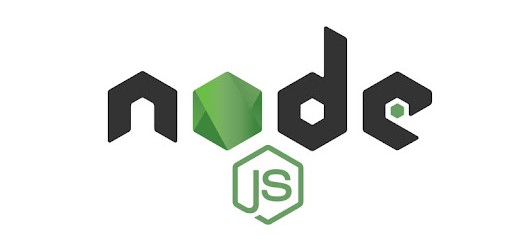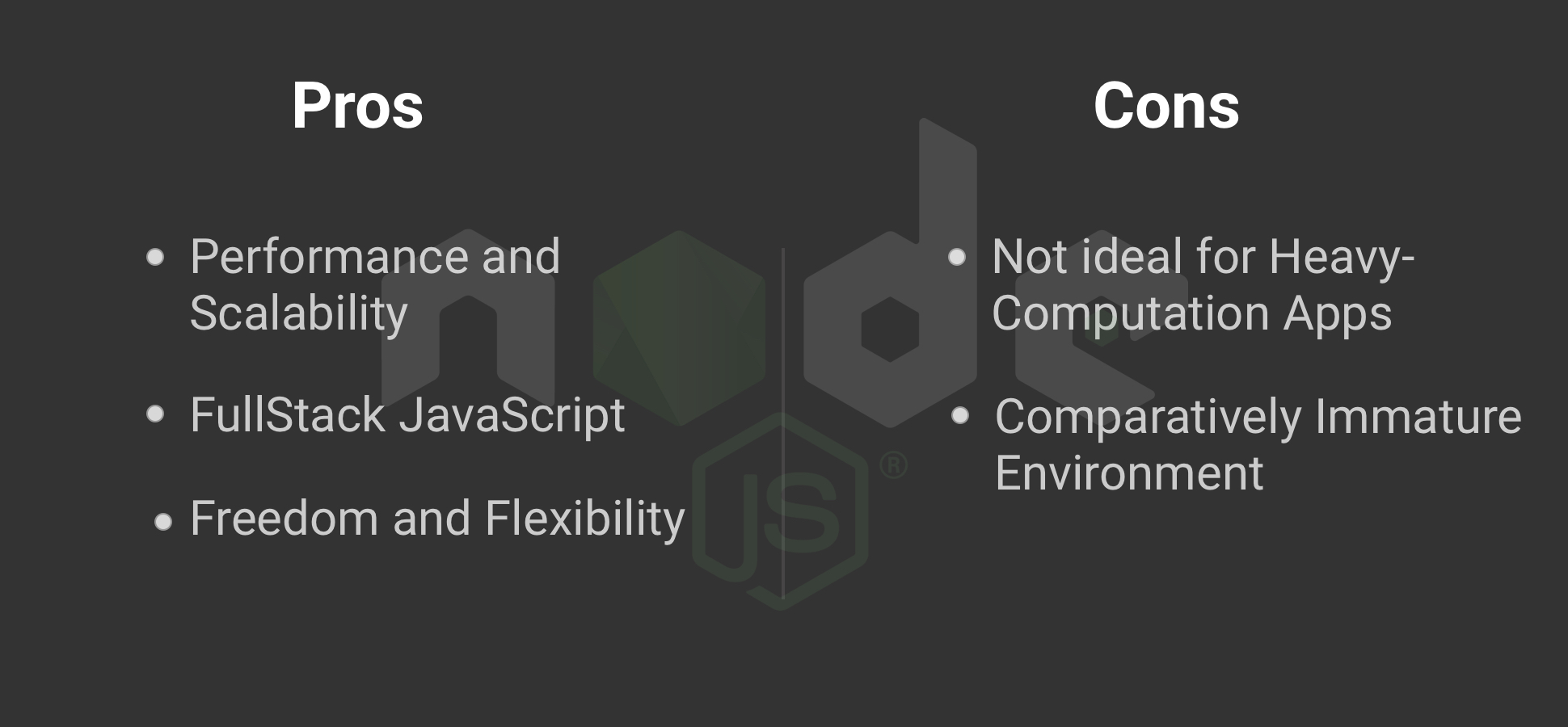Explore the Pros and Cons of Using Node.js for Web Development

Share This Article
Web Application Architecture Ultimate Guide for 2023
Table of Contents
Subscribe to Our Blog
We're committed to your privacy. SayOne uses the information you provide to us to contact you about our relevant content, products, and services. check out our privacy policy.

In the current scenario, JavaScript has a vital role in web development. As we all know, JavaScript is one of globally accepted software development technologies. It has grown from a frontend development tool, to a major cross-platform mobile development tool for wider platforms, such as Apache Cordova/PhoneGap, React Native, NativeScript etc.
Nowadays the application area for JavaScript has been used for server-side programming. Well, Node.js has played an essential role in the notable shift in web development. So it is crucial to learn every aspect of Node.js like how it works, the advantages and disadvantages of Node js etc.
What is node js?
Node. js is a popular open-source, cross-platform JavaScript runtime environment that can run on Windows, Linux VPS, Unix, macOS, and more. It’s a back-end JavaScript runtime environment that runs on the V8 JavaScript Engine. Node.js can
Download our eBook for FREE: “Global Software Development Rates – an Overview”.
Pros and Cons of Node.js

When it comes to understanding the pros and cons of Node.js several factors are to be considered. Speed, tech scalability, performance, application limitations, etc are few of those factors. The pace of your application to the market depends on decisions made at this stage.
JavaScript is a web front-end development tool or a client-side programming language which is quite a handy client for building cross-development platforms. Writing server-side code in JavaScript was just a simple idea until the introduction of Node.js in 2009.
The advantages of Node.js has made node.js web application development very simple, cost-effective, and super-efficient with JavaScript running on the server-side.
Pros of Node.js
High-performance Real-time Applications
Node.js is capable of building super-fast applications that give results in the blink of an eye. The single-threaded, event-driven architecture processes multiple parallel requests efficiently without jamming the RAM. Its event-loop and non-blocking I/O operations let code execution at a pace that indirectly affects the application’s overall performance. It’s powered by Google Chrome’s V8 engine which is actually coded in C++.
Cost-effective
Along with JavaScript code on the front end, Node.js allows coders to write server-side code in JavaScript. It eliminates the blocks of hiring two resource teams, saving a great deal of time, cost, and energy for overall project development.
Extensibility
Node.js can be customized and further extended as per the requirements as it offers high extensibility. The JSON format can also be used for exchanging data between the web server and the client. It provides built-in APIs for developing HTTP, TCP, DNS, etc.
Easy Scalability
Node.js services a non-blocking event-loop mechanism that offers high scalability and enables the server to process requests effortlessly. It simplifies load balancing over multiple CPU cores, and without burning out the RAM process. It also makes easy delivery of desired outcomes through smaller modules and offers a better option than other JavaScript servers.
Read our blog on “Node.js vs Java spring boot for microservice”.
Cons of Node.js
API Instability
Frequent API changes and the lack of stability are the most significant drawbacks of Node js. As a result, the developers are forced to change the access code to match the compatibility with the latest version of Node.js API.
Lack of Library Support system
Many NPM registries and libraries in Node.js are either poor quality or incomplete. If some amateurs develop a web application in Node.js, this insufficient monitoring becomes complex.
Reduces performance
One of the advantages of Node. js ie. single-threaded and event-driven are the same reasons that reduce its performance while executing heavy CPU-based computing.
Looking for high-quality software development services? Get in touch with us for a free consultation.
The Conclusion
Node.js has more advantages than its disadvantages. It can be used for both front end and back end servers. Nowadays more business organizations are using Node.js web apps with positive results as time progresses.
Share This Article
FAQs
Node JS lets a developer write server-side code using Javascript on the front end as well as on the back end. The biggest advantage is its ability to eliminate remuneration requirements by allowing two resource teams to work together, reducing time and costs.
Node. js is a platform built on Chrome's JavaScript runtime for easily building fast and scalable network applications. It uses an event-driven, non-blocking I/O model that makes it lightweight and efficient.
Node. js supports extremely fast processing with event-based, single-thread architecture. It also speeds up desktop and web development time with its full-stack potential, cross-platform capabilities, robust NPM toolkit etc.
Subscribe to Our Blog
We're committed to your privacy. SayOne uses the information you provide to us to contact you about our relevant content, products, and services. check out our privacy policy.



